Did you know that Karachi, the largest city of Pakistan and one of the world’s most densely populated cities, produces around 16,000 tonnes of waste every day? Unfortunately, most of the waste is disposed of directly in landfills, leading to adverse environmental impacts. Additionally, a significant portion ultimately finds its way into the oceans, posing a threat to marine ecosystems and biodiversity.
On the other hand, experts say that poorly maintained drains and one-time-used plastic bags (polythene shoppers) are the key source of urban flooding in metropolitan cities, which cause a huge destruction and misery in the lives of citizens during heavy rainfall every year.
Globally, more than two billion tonnes of waste is generated every year, but one-quarter of the world’s population doesn’t have access to a proper waste collection system, according to the World Economic Forum. While the International Trade Administration maintains that Pakistan generates approximately 49.6 million tonnes of solid waste a year, which has been increasing more than 2.4 percent annually.
Like many other developing nations, Pakistan also faces a challenge in terms of waste management infrastructure, resulting in significant environmental issues. A lot of municipal waste is disposed of through burning, dumping, or burying in empty areas, posing risks to the overall health and well-being of the population.
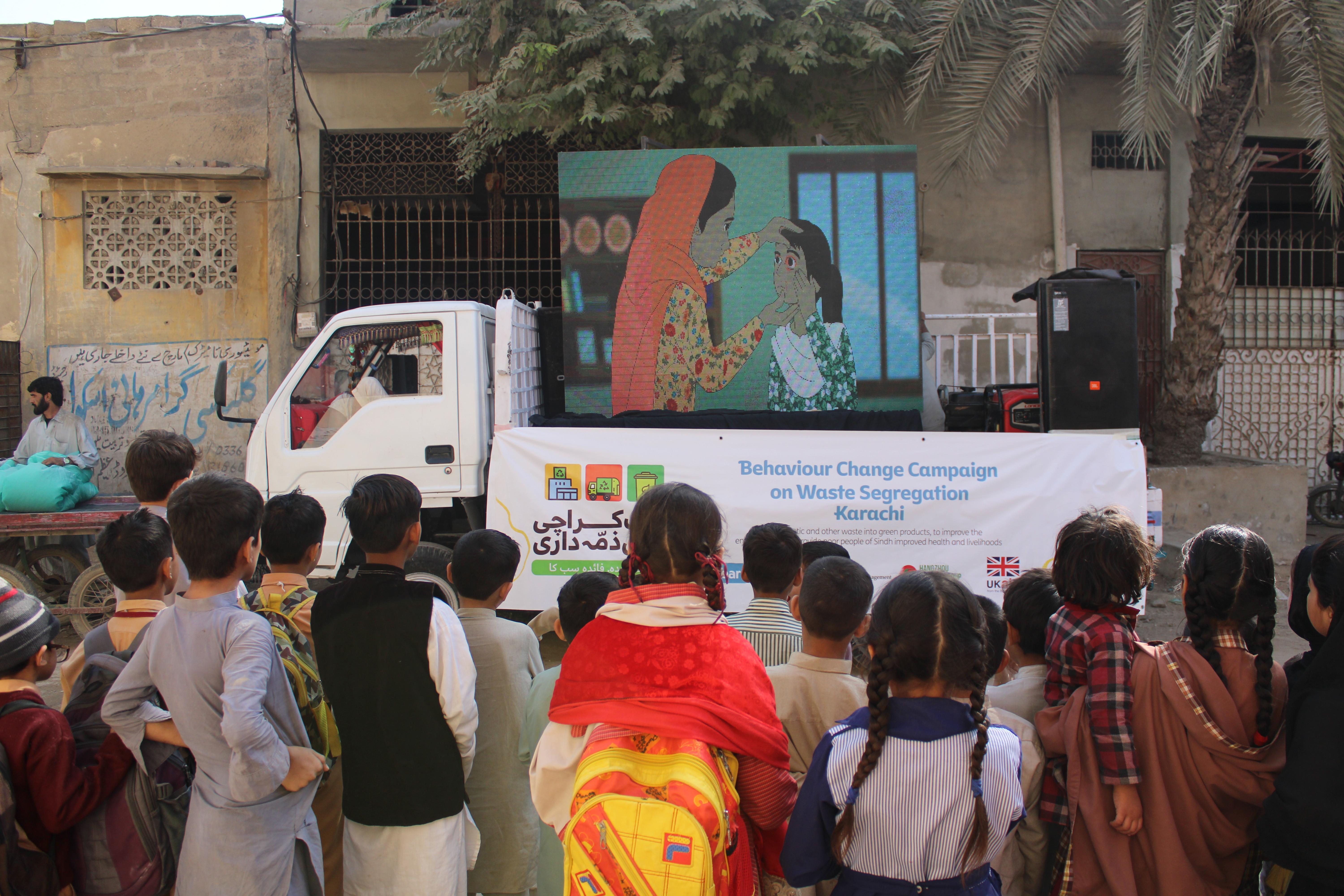
The initiative
Dedicated to promoting environmental sustainability and enhancing livelihoods, a groundbreaking initiative titled Turning Plastic and Waste into Green Solutions, is revolutionising waste management practices and fostering community development across communities in Karachi.
Spearheaded by Tearfund Pakistan [a charity which partners in more than 50 of the world’s poorest countries to tackle poverty and injustice through sustainable development], the project based on the above initiative is known as Haryali Hub and has been facilitated as a public-private partnership through an MOU between Tearfund and the Sindh Solid-Waste Management Board (SSWMB).
The Haryali Hub, an environmentally and economically sustainable solid waste management model, operates in four Union Councils (UCs) in Karachi such as UC Sharafi and UC-08 Moinabad in District Malir, and UC-30 Saeedabad and UC-37 Naval Colony in District Keamari.
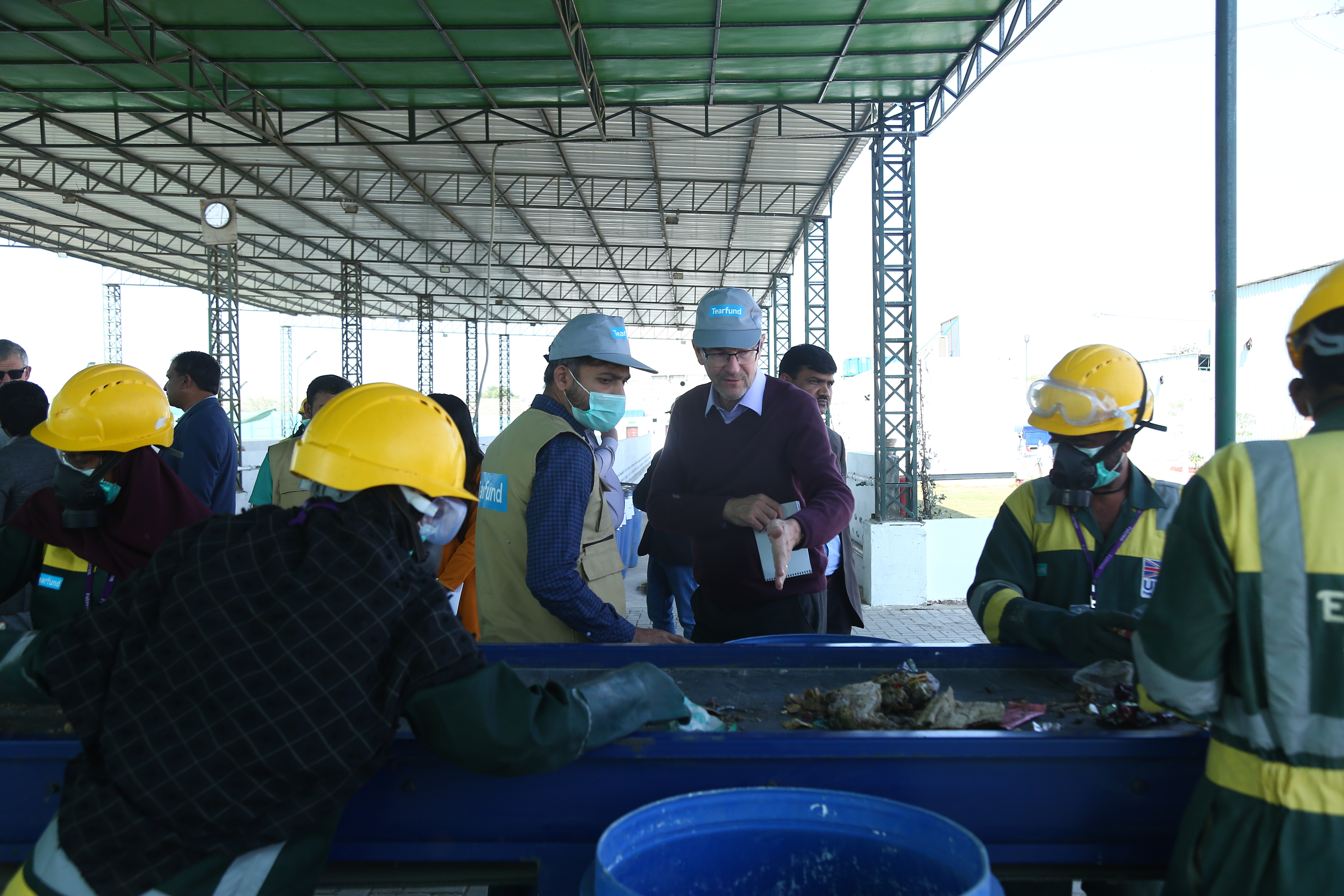
The site
A Haryali Hub model site looks like a small industrial set up, where dozens of men and women are busy sorting out household waste.
“I am sorting through the domestic waste received,” shares Rubina, an environment guard at Haryali Hub, as she picks through polythene bags, PET bottles, iron pieces, and clothes from a conveyor belt, and throws them in especially labelled drums. “I specifically focus on extracting polythene bags, which along with the plastic material retrieved is recycled into waste bins.”
The site located in Baldia, District Keamari, is a solid-waste management model that collects, re-treats and recycles household waste.
“Some 433.68 tonnes of valuable waste is recycled from 24,000 households at two Haryali Hub units established in collaboration with the Sindh Solid-Waste Management Board,” reveals Jonathan Johnson, country director Tearfund.
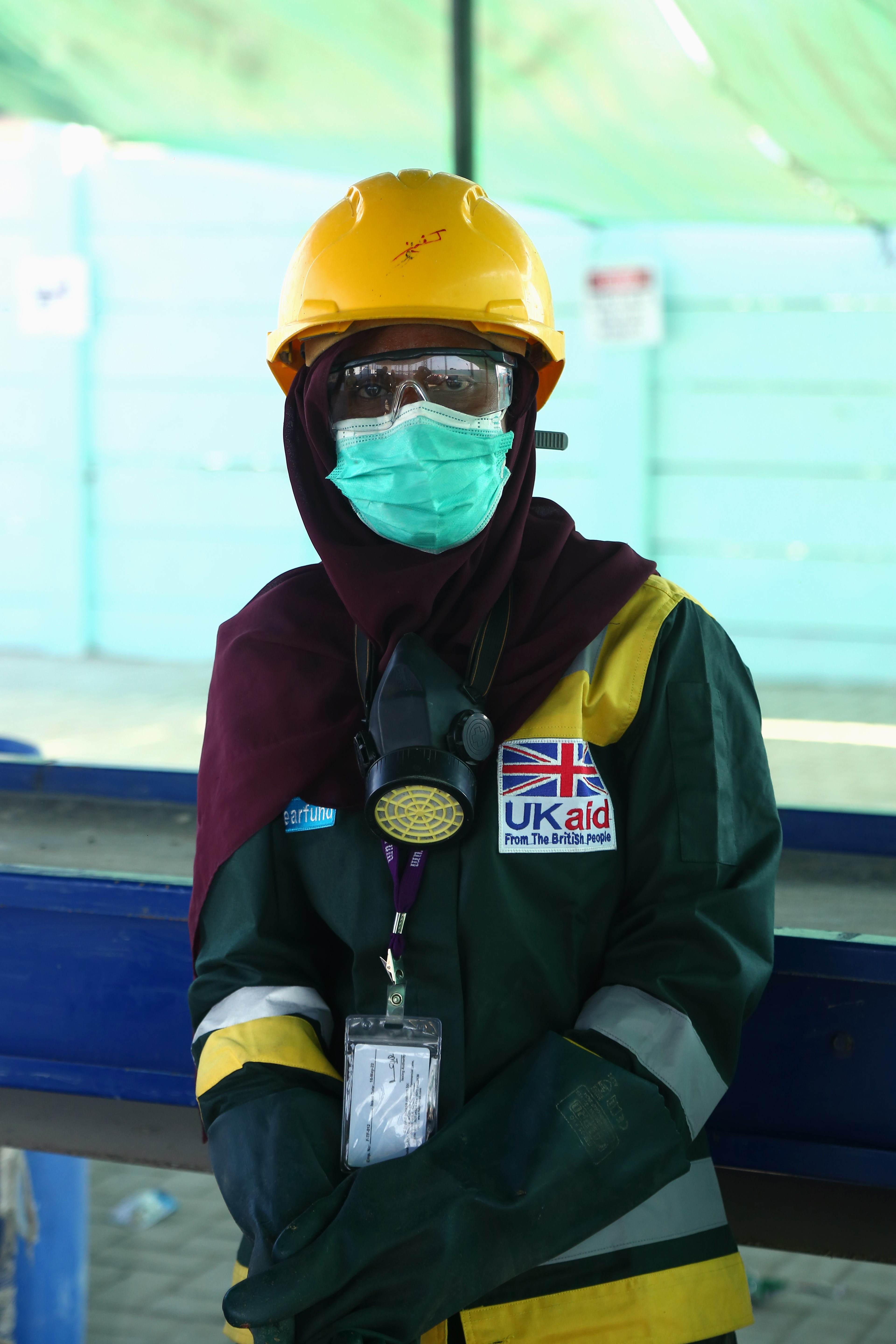
The sorted household waste from four UCs of District Malir, and Keamari is daily transported by Sindh Solid Waste Management Board vehicles to the Haryali Hub unit.
The Haryali Hub sites have facilities to extract recyclable materials from household waste, which ultimately reduces the amount of waste going into the environment. This also saves the transportation cost of delivering waste to landfill and hence contributes to reduced carbon footprint.
“Single-use polythene bags are a major source of pollution in our environment, since informal garbage pickers do not collect this waste from streets,” says Aqdas, an E-Guard at Haryali Hub. “Often, these end up in the landfill, get burnt or find their way into sewerage drains.”
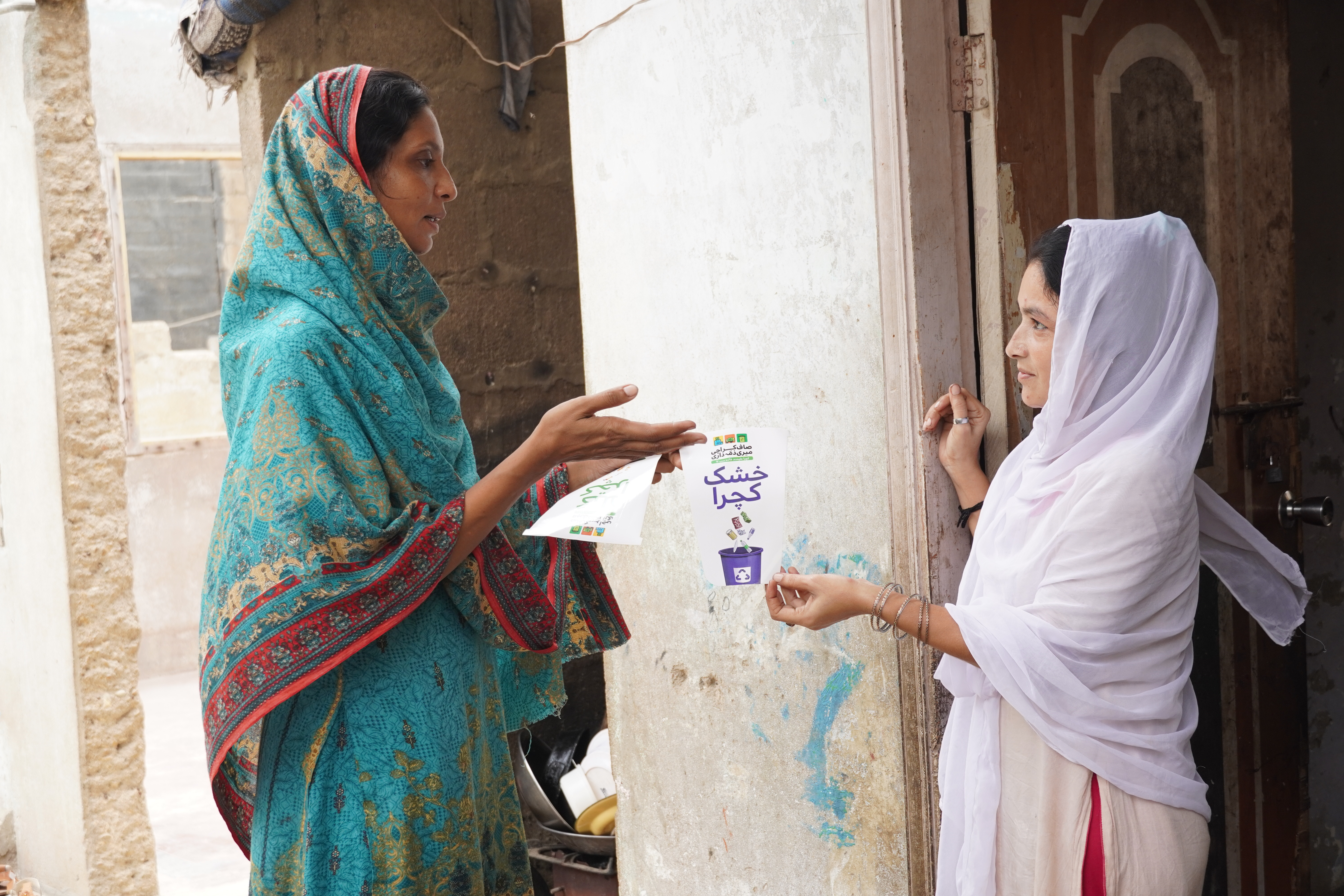
Waste bins and compost
Multiple machines at Haryali Hub recycle single-use polythene bags, first transforming them into into plastic pellets that are later transformed into waste bins. The hub plans to sell these eco-friendly waste bins in the market to generate revenue.
Also, kitchen waste is converted into organic compost that can be used for gardening, nurseries, parks and agriculture.
“Every day, we handle roughly 8-10 tonnes waste from about 12,000 households,” says Kaneez, an e-guard kitted in full safety gear, as she sorted out garbage at Haryali Hub. “Since the garbage is mixed up, sorting through it to pick out recyclable waste is a slow and time-consuming. If we were to receive waste that has already been sorted out at home level, it would be easier and more time-efficient.”
Sixty-eight tonnes of polythene bags that have been recovered have been put into process for recycling. These amount to 15.7 % of the total value of the waste, sorted out and saved from going to dumping sites or water streams.
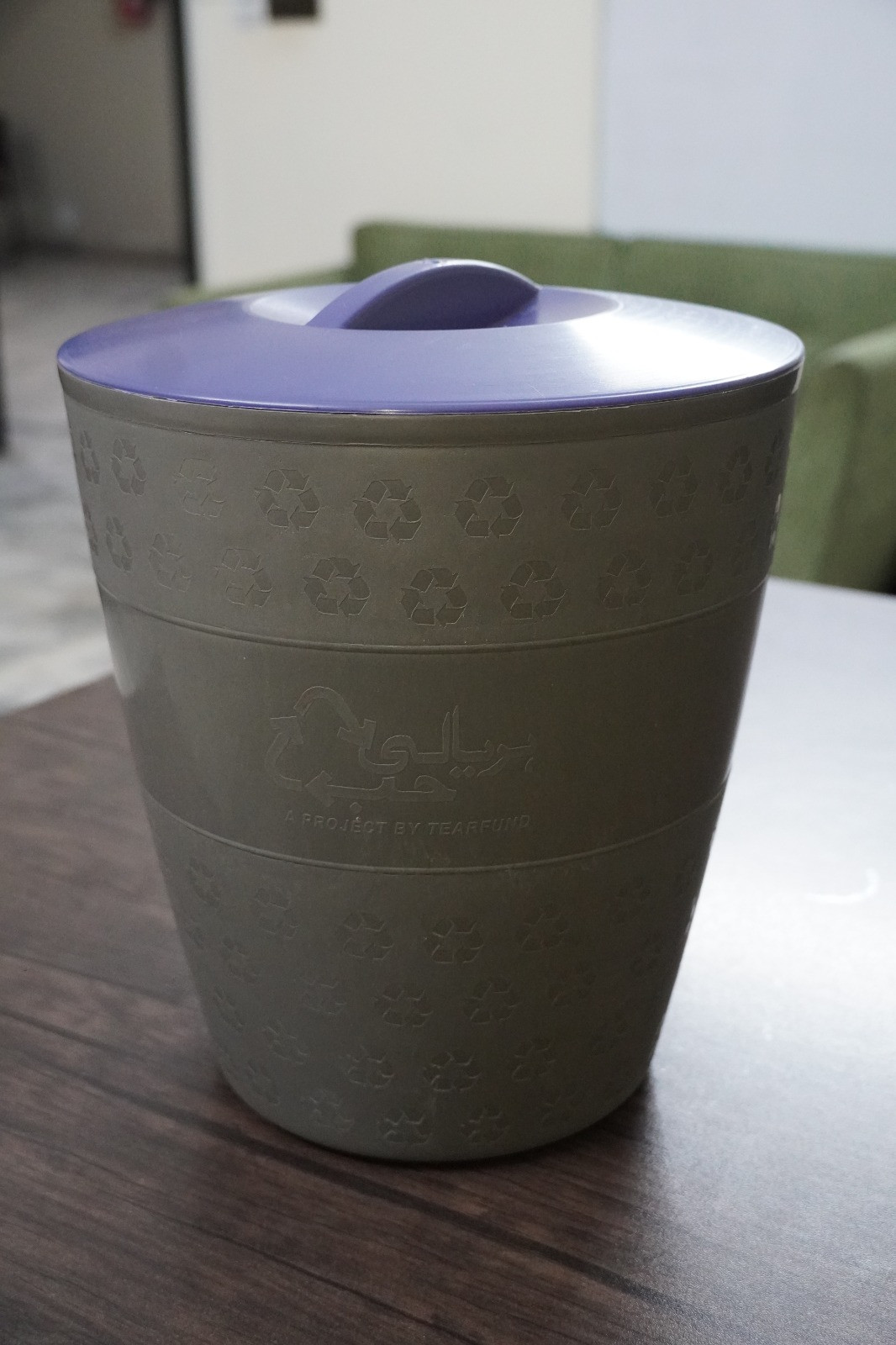
“We initiated the ‘Saaf Karachi Meri zimmedari’ [Clean Karachi, My Responsibility] campaign,” shares Sajid Gulzar, project director Haryali Hub. “In regard to this, we showcased animated videos at different locations, organised interactive theatre performances, distributed brochures, involved volunteers, youth, and proactive citizens to raise awareness about waste segregation, proper disposal methods, and maintaining cleanliness in the area.”
The two-bin concept has also been introduced in the four UCs in Karachi, to raise awareness among residents about disposing dry waste and wet kitchen waste into separate bins for efficient recycling. In this way, vegetable peels, fruit peels, eggshells, dry leaves, and tea goes into one bin, while dry waste such as paper, metal, bottles, cardboard, plastic bags, broken toys, clothing, hair, and other items go in another bin.
At the waste collection areas in Saeedabad, Baldia, and District Keamari, you can see dedicated volunteers actively involved in waste-recycling initiatives facilitated by Haryali Hubs.
“We don't produce a lot of garbage at home, and most of it is kitchen waste," shares Nighat, a resident of Saeedabad. “However, now we daily put vegetable and fruit peels separately in a shopping bag, ready for the waste collectors. I'm encouraging my neighbours to join in the campaign as well. While some have responded positively, others are not as enthusiastic."
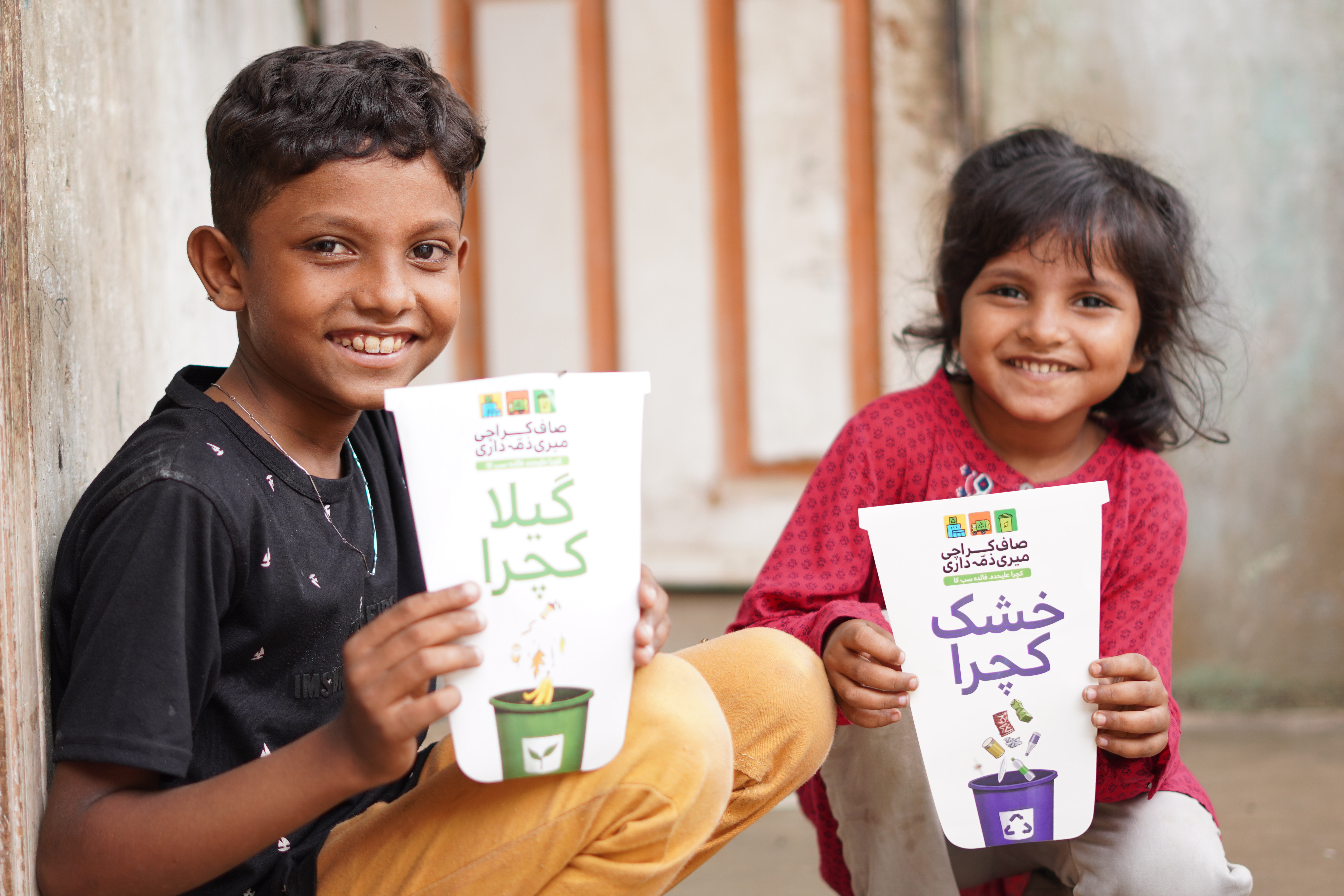
The dangers of open dumping
The research department at Tearfund conducted a study to assess household solid waste generation, composition, and characteristics. For this purpose, two union councils were selected from District Malir and Keamari, and a total of 1012 households were randomly chosen.
The study findings indicate that each household generates 1.22 kg of waste per day. However, open dumping is observed more in the areas where the public waste bins are either at a distance or not available.
Dumping sites often lead to disputes among residents over the disposal of waste in empty lots, on streets, outside homes, and on roundabouts. When this waste is burnt, it poses greater hazards for nearby residents, resulting in multiple health and environmental risks.
According to another health research conducted by Tearfund and professors from London School of Hygiene and Tropical Medicine, when mismanaged waste is openly burnt, it releases pollutants that increase the risk of respiratory ailments, skin, eye and heart diseases and damage to reproductive and nervous systems. Waste disposal practices were surveyed, and waste was perceived as a huge problem by most households. The most common waste-disposal practice was waste taken out of the compound by households, thrown and burnt on the open ground. Living among mismanaged waste doubles the incidence of diarrhoea which is globally the second leading cause of death in children under five years old.
At another Haryali Hub in UC Sharafi Goth, District Malir, young volunteers who have been educated about waste management are enthusiastic about improving the environment in their residential areas.
"The dumping site in our neighbourhood had become a source of conflict, resulting in numerous incidents and disputes among families. This was because of people throwing waste in a vacant plot that served as the centre of the colony," shared Yaseen Marwat, a young resident. “To address this issue, we formed a youth team in our colony and took the initiative to identify individuals who were contributing to the waste problem. We explained to them the importance of responsible waste disposal. The corner, which was previously filled with foul-smelling waste, particularly affected many children in the area. The area has been cleared of waste and people now deliver their house-hold waste to waste collectors through the Sindh Solid-Waste Management Board."
Haryali Hub could serve as a model for other regions, as it involves community engagement, partnerships with various stakeholders and government departments, all focused on the unified goal of waste sorting, proper disposal, recycling, and re-utilising recycled materials. This not only has environmental benefits, but also improves public health and creates green employment opportunities for local residents.
One imagines a clean and green environment, but it can only be realised through the integration of circular economy principles into government policies and action, by recycling, reusing and reducing the amount of waste. Or else, we will be living in a huge heap of trash, in disease and death.
Manoj Genani is a freelance photojournalist and documentary photographer
All facts and information are the sole responsibility of the writer
